Outcasts in Their Own Families
Overweight family members confront the loved ones whose mean words have hurt them the most.
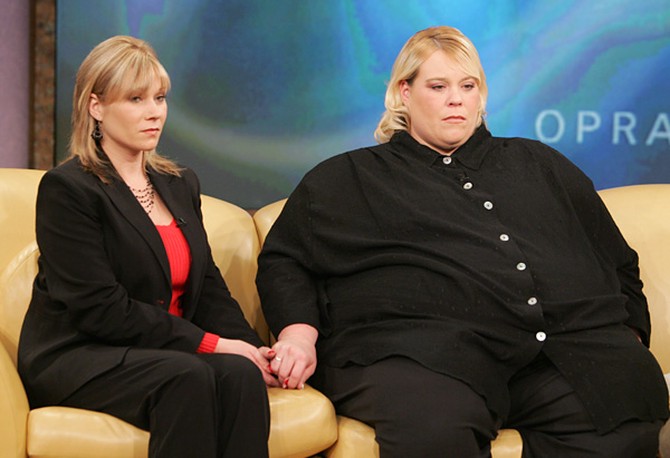
Mary and Ruth, 34-year-old twins, could not look more different. Mary is 420 pounds, while her sister, Ruth, is 120 pounds.
"I was centered out even by my mother as being the pretty one," Ruth says. "'This is my pretty little girl, Ruth. And this is Mary.' My role in the family became not just to be the pretty one but to be the thin one as well. No one could believe we were twins."
"Not only being the fat one in the family, but being the fat twin," Mary says, is especially painful. "I've always been in the shadow," she says, "standing back and watching her get all the attention."
"I was centered out even by my mother as being the pretty one," Ruth says. "'This is my pretty little girl, Ruth. And this is Mary.' My role in the family became not just to be the pretty one but to be the thin one as well. No one could believe we were twins."
"Not only being the fat one in the family, but being the fat twin," Mary says, is especially painful. "I've always been in the shadow," she says, "standing back and watching her get all the attention."
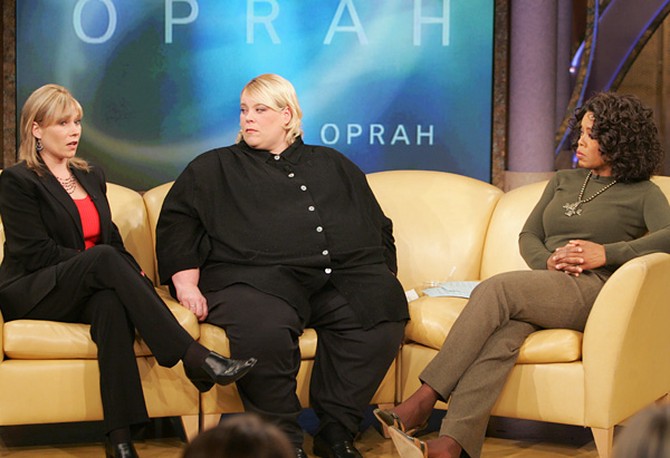
Ruth says that the pressure of being the "pretty, thin twin" isn't the only thing that became difficult for her. Ruth says she feared if she didn't put the pressure on herself, she might end up overweight like Mary.
"I've gone through many battles of anorexia and bulimia because I didn't want to look like her," Ruth says. "And it's not that I'm ashamed of her to that point. I love her—she's my sister. But I don't want to ever be like her and go through what she goes through—pain, torment, hurt. People staring and making fun of [her]. It's amazing how cruel other people can be."
Mary says that taping a segment at a restaurant for the show helped her wake up. She's been overweight for 25 years, and it's time for a change.
"I never realized what I eat. [I was] just sitting there looking at all the food. [I thought,] 'Everybody's going to see me eating like this.' It's very embarrassing," she confesses. "This is a huge breakthrough. I've just realized what I eat. But it's terrible. I wouldn't even have realized I was getting seconds. I was just doing it. And I didn't know why. With this one day, I see it. And it's humiliating. It's like an eye-opener to me. I need help. I feel humiliated."
"I've gone through many battles of anorexia and bulimia because I didn't want to look like her," Ruth says. "And it's not that I'm ashamed of her to that point. I love her—she's my sister. But I don't want to ever be like her and go through what she goes through—pain, torment, hurt. People staring and making fun of [her]. It's amazing how cruel other people can be."
Mary says that taping a segment at a restaurant for the show helped her wake up. She's been overweight for 25 years, and it's time for a change.
"I never realized what I eat. [I was] just sitting there looking at all the food. [I thought,] 'Everybody's going to see me eating like this.' It's very embarrassing," she confesses. "This is a huge breakthrough. I've just realized what I eat. But it's terrible. I wouldn't even have realized I was getting seconds. I was just doing it. And I didn't know why. With this one day, I see it. And it's humiliating. It's like an eye-opener to me. I need help. I feel humiliated."
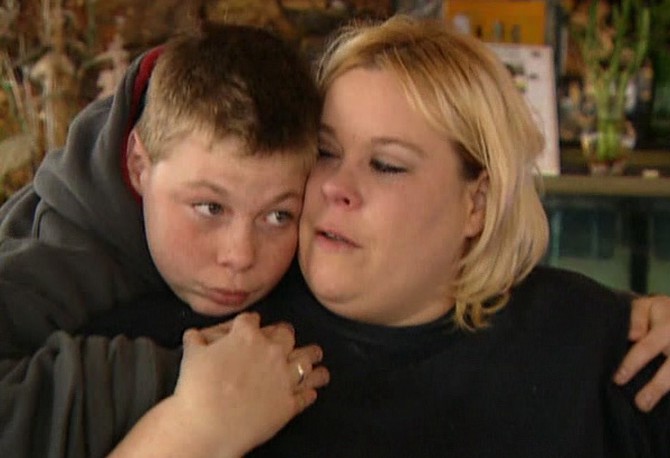
Mary's 13-year-old son, Chris, is coming forward with the pain he has kept hidden until now. Chris is so worried, he has even started curbing what he eats at school in fear he will become obese.
"I get embarrassed when people look at her, and point at her and talk really bad to her," Chris says. "I just want to throw a basket at them or something. Since my mom is big and obese, she can't play or she can't ride rides with us. It just makes me really mad at her. She's just going to keep on eating food instead of taking care of us. It's jeopardizing my future. I really want a mom there whenever I graduate. I really just want to say to my mom to just stop eating, because if you keep on going, you can die. And I don't want you to die because you're my mom. I've never told her that."
"I get embarrassed when people look at her, and point at her and talk really bad to her," Chris says. "I just want to throw a basket at them or something. Since my mom is big and obese, she can't play or she can't ride rides with us. It just makes me really mad at her. She's just going to keep on eating food instead of taking care of us. It's jeopardizing my future. I really want a mom there whenever I graduate. I really just want to say to my mom to just stop eating, because if you keep on going, you can die. And I don't want you to die because you're my mom. I've never told her that."
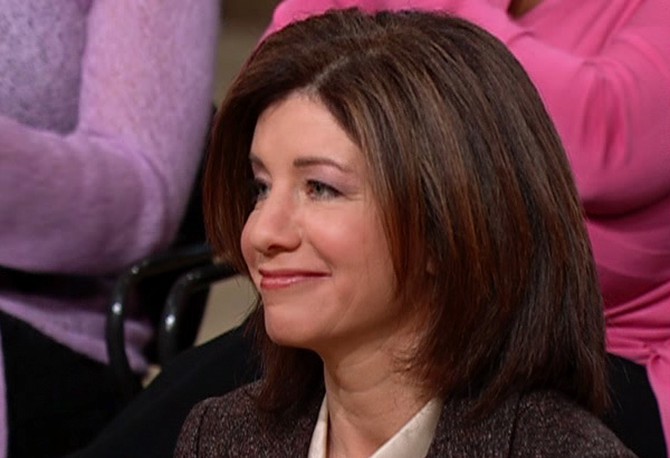
Dr. Gail Saltz is a psychotherapist who deals with people struggling with weight issues. She says although Mary and Ruth need to figure out their relationship moving forward, Mary needs to find a broader support system than just her sister to overcome her issues with weight.
"Support systems are extremely important, and your sister, Ruth, has been kind of your sole support system," Dr. Saltz says. "And because of these mixed feelings, that is not really a great way to go. You can love each other, and I would say you [Ruth] could help her. Not with the food, where you have these mixed feelings, but give her time. Maybe be with her sons so she has some time to take a walk or to do some things that feel more healthful for her. Until you can be more aware of what you're saying about food and about your mixed feelings, you [Mary] need some friends, some community, some people around you who can really support you, because they're not invested in this relationship."
"Support systems are extremely important, and your sister, Ruth, has been kind of your sole support system," Dr. Saltz says. "And because of these mixed feelings, that is not really a great way to go. You can love each other, and I would say you [Ruth] could help her. Not with the food, where you have these mixed feelings, but give her time. Maybe be with her sons so she has some time to take a walk or to do some things that feel more healthful for her. Until you can be more aware of what you're saying about food and about your mixed feelings, you [Mary] need some friends, some community, some people around you who can really support you, because they're not invested in this relationship."
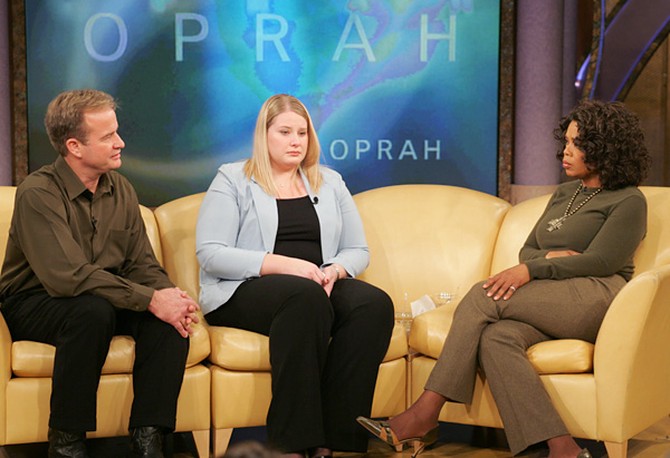
Jill has three skinny siblings and a father who reminds her every day that she is the fat one in the family.
"Does it bother me when we're out in public that Jill's overweight?" asks Kirk, Jill's father. "It does. I'll be honest. I do believe that Jill has an issue with self-control. She loves food and oftentimes cannot stop. When she opens up the refrigerator, I'll say, 'Jill, it's after 8. You don't really need something to eat this late.' I will give her a look like, 'Jill, you really don't need to be eating that.'"
For Jill, her father's unspoken disapproval is the most upsetting. "That look is probably sometimes harder to see than it is to hear," she says.
"Does it bother me when we're out in public that Jill's overweight?" asks Kirk, Jill's father. "It does. I'll be honest. I do believe that Jill has an issue with self-control. She loves food and oftentimes cannot stop. When she opens up the refrigerator, I'll say, 'Jill, it's after 8. You don't really need something to eat this late.' I will give her a look like, 'Jill, you really don't need to be eating that.'"
For Jill, her father's unspoken disapproval is the most upsetting. "That look is probably sometimes harder to see than it is to hear," she says.
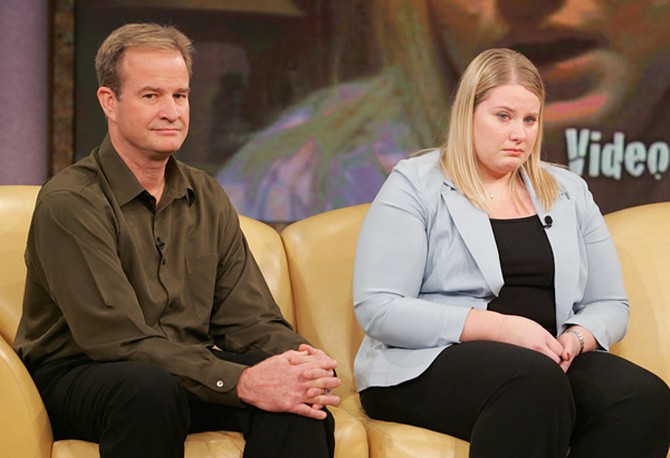
Kirk has no idea how deeply his words are hurting his daughter. "I've wanted my dad to accept me my whole life," says Jill. "He treats me differently than he treats every other person in my family. My whole life he's told me that I'm not pretty and that I'm overweight and that I need to lose weight, and he's just never been nice to me. I feel so much hatred towards my father because of the way he treats me."
This is the first time that Jill has ever shared these feelings with her family. Kirk is taken aback by Jill's revelation. "That's hard to hear," he says, "because I love my daughter deeply. I'm ashamed of her weight, but I love my daughter dearly."
This is the first time that Jill has ever shared these feelings with her family. Kirk is taken aback by Jill's revelation. "That's hard to hear," he says, "because I love my daughter deeply. I'm ashamed of her weight, but I love my daughter dearly."
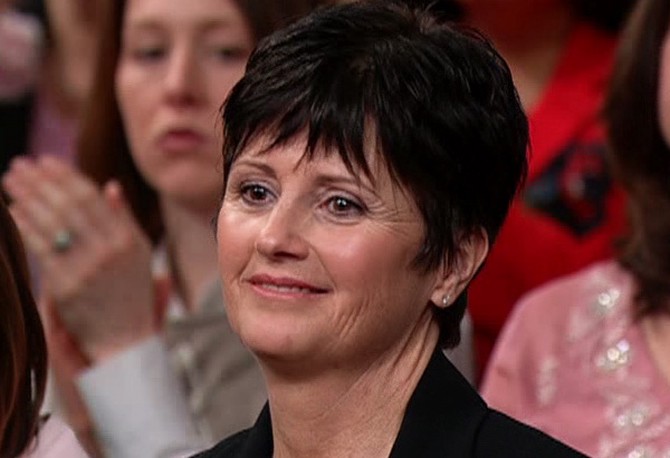
"Jill's weight does not bother me at all," says Jill's mother, Cay. "Not at all."
Jill and her mother keep a secret from Kirk—after he goes to bed, they eat doughnuts and ice cream. "We'll just eat tons of them and leave them in the car and wait till he goes to work the next day and pull them out and eat some more," Cay reveals.
"We have to hide everything," Jill explains, "so he doesn't make us feel bad."
Jill and her mother keep a secret from Kirk—after he goes to bed, they eat doughnuts and ice cream. "We'll just eat tons of them and leave them in the car and wait till he goes to work the next day and pull them out and eat some more," Cay reveals.
"We have to hide everything," Jill explains, "so he doesn't make us feel bad."
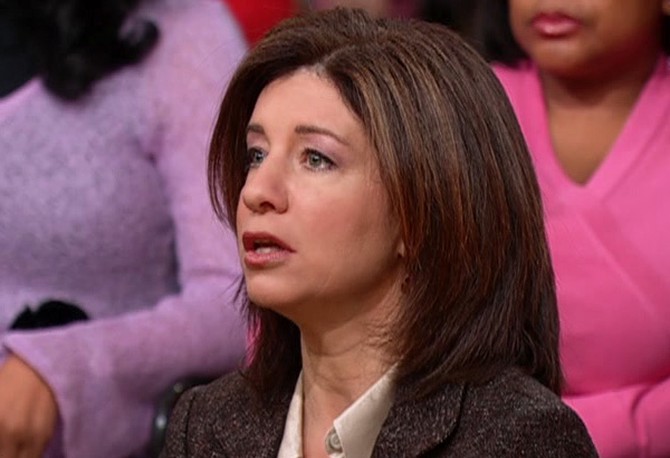
Dr. Saltz says it's no wonder Jill is struggling with so much pain. "You've got your dad locked in this torturous dance of being cruel to each other and defiant. But you've got your mom off to the side sneaking away from dad. Your parents are divided. You have them each individually—and there's nothing more guilt inducing...I suspect that that is further fueling your eating; stuffing down the guilt."
Dr. Saltz says that Jill's dad needs to stop seeing his daughter as a narcissistic extension of himself, as if Jill's extra weight were his own. "It's not your body," she explains. "It's her body."
Dr. Saltz says that Jill's dad needs to stop seeing his daughter as a narcissistic extension of himself, as if Jill's extra weight were his own. "It's not your body," she explains. "It's her body."
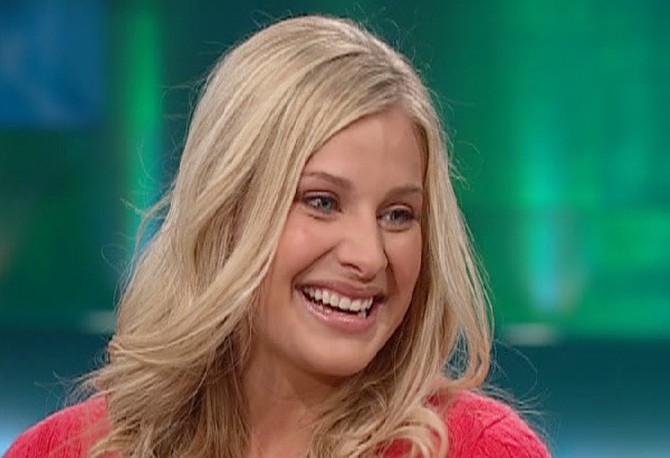
In 2006, Jill returned to The Oprah Show to share the latest on her weight loss goals. After having gastric bypass surgery, she had lost 170 pounds! Jill says the decision to have the surgery changed her life. "I'm a different person. I'm more outgoing, I'm fun," she says. "For the first time, I love to be me."
Jill says she's no longer angry at her dad. "I realized something that was very powerful for me. I have realized that my dad has always loved me," Jill says. "I was so defensive about everything, and now I can look at it as he was concerned for me and he wanted me to be happy. I truly believe that."
Just because Jill lost weight doesn't mean her problems went away. Jill says she cried every day for three months after her surgery because she missed food. "Food was my life," she says. "Food was my best friend and I miss it."
Jill continues to see a therapist twice a month and also attends gastric bypass support group meetings. "It is a daily battle," she says. "I have said to so many people, it is the hardest thing I have ever done and it is the hardest thing I still do."
Read what happened when Jill and Kirk returned to The Oprah Show in 2011
Jill says she's no longer angry at her dad. "I realized something that was very powerful for me. I have realized that my dad has always loved me," Jill says. "I was so defensive about everything, and now I can look at it as he was concerned for me and he wanted me to be happy. I truly believe that."
Just because Jill lost weight doesn't mean her problems went away. Jill says she cried every day for three months after her surgery because she missed food. "Food was my life," she says. "Food was my best friend and I miss it."
Jill continues to see a therapist twice a month and also attends gastric bypass support group meetings. "It is a daily battle," she says. "I have said to so many people, it is the hardest thing I have ever done and it is the hardest thing I still do."
Read what happened when Jill and Kirk returned to The Oprah Show in 2011
Published 05/18/2005

